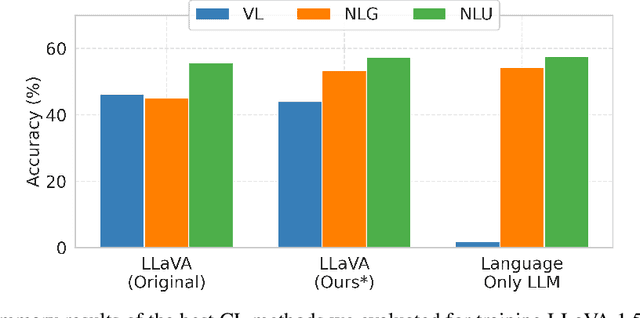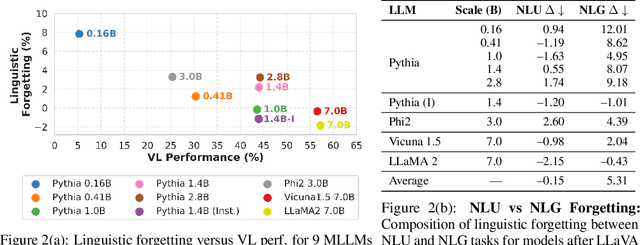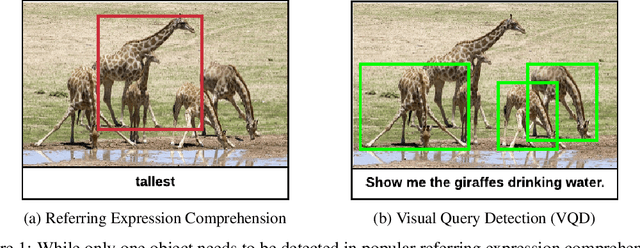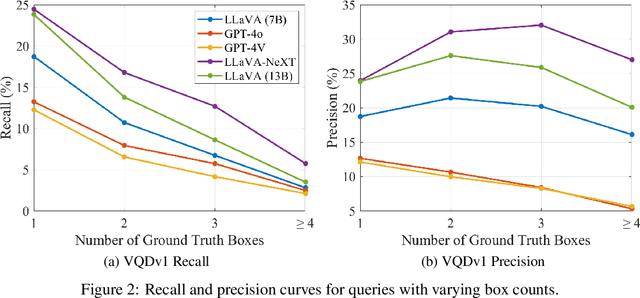Shikhar Srivastava
Improving Multimodal Large Language Models Using Continual Learning
Oct 25, 2024



Abstract:Generative large language models (LLMs) exhibit impressive capabilities, which can be further augmented by integrating a pre-trained vision model into the original LLM to create a multimodal LLM (MLLM). However, this integration often significantly decreases performance on natural language understanding and generation tasks, compared to the original LLM. This study investigates this issue using the LLaVA MLLM, treating the integration as a continual learning problem. We evaluate five continual learning methods to mitigate forgetting and identify a technique that enhances visual understanding while minimizing linguistic performance loss. Our approach reduces linguistic performance degradation by up to 15\% over the LLaVA recipe, while maintaining high multimodal accuracy. We also demonstrate the robustness of our method through continual learning on a sequence of vision-language tasks, effectively preserving linguistic skills while acquiring new multimodal capabilities.
Revisiting Multi-Modal LLM Evaluation
Aug 09, 2024



Abstract:With the advent of multi-modal large language models (MLLMs), datasets used for visual question answering (VQA) and referring expression comprehension have seen a resurgence. However, the most popular datasets used to evaluate MLLMs are some of the earliest ones created, and they have many known problems, including extreme bias, spurious correlations, and an inability to permit fine-grained analysis. In this paper, we pioneer evaluating recent MLLMs (LLaVA 1.5, LLaVA-NeXT, BLIP2, InstructBLIP, GPT-4V, and GPT-4o) on datasets designed to address weaknesses in earlier ones. We assess three VQA datasets: 1) TDIUC, which permits fine-grained analysis on 12 question types; 2) TallyQA, which has simple and complex counting questions; and 3) DVQA, which requires optical character recognition for chart understanding. We also study VQDv1, a dataset that requires identifying all image regions that satisfy a given query. Our experiments reveal the weaknesses of many MLLMs that have not previously been reported. Our code is integrated into the widely used LAVIS framework for MLLM evaluation, enabling the rapid assessment of future MLLMs. Project webpage: https://kevinlujian.github.io/MLLM_Evaluations/
 Add to Chrome
Add to Chrome Add to Firefox
Add to Firefox Add to Edge
Add to Edge